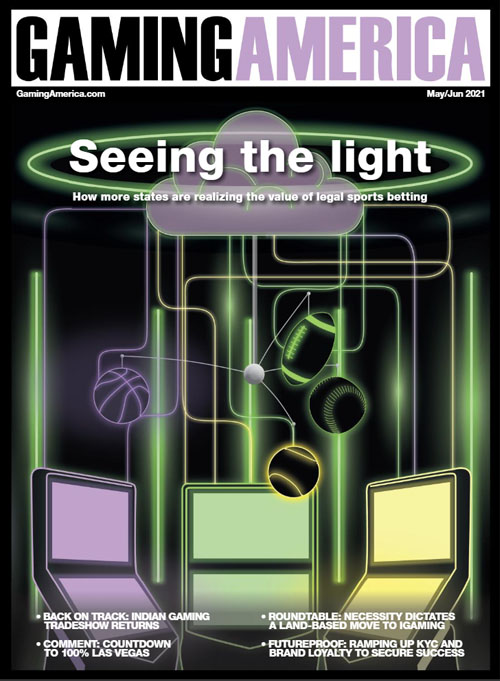
Literature on casinos has grown expeditiously over the last quarter century since crime reporter Nicholas Pileggi published the landmark, Casino: Love and Honor in Las Vegas, the non-fiction basis of Martin Scorsese’s film of the same name. These books are often written by gaming executives or academics, and as great as they are, they tend leave behind voices of the people who actually work on the front lines of casinos. This makes the addition of Linda Ellis’ Joe’s Dash: The Million Dollar Drug Busts to Multi-Million Dollar Collections for Las Vegas Casinos all the more significant.
Distributed by Las Vegas-based Huntington Press Publishing, Joe’s Dash tells the story of Joe Dorsey, former director of security at several of Sin City’s largest casinos. At slightly under 300 pages, the book is a page turner in the truest sense. Ellis shares Dorsey’s life using dozens of gripping anecdotes, beginning with his harsh upbringing in the projects of Cleveland, Ohio.
Eager to escape poverty and a broken family, Dorsey signed up for the Navy in 1961 and was transported from the dreary Midwest to sun-soaked San Diego. There he soon joined the Coast Guard and later, local law enforcement. Dorsey saw death and destruction up close, from Mexican border drug cases gone wrong to maritime disasters. During this time, he also established key relationships with police and intelligence officers domestically and abroad, which would be invaluable to his later gaming career.
In 1980 Dorsey was working with a Nevada Gaming Control Board agent on a gaming license application investigation when he received the offer that would change his life: trade in his handgun for an American Express credit card and join the NGCB as a background investigator. Dorsey’s wife Karen, an aspiring singer with gigs lined up at MGM Grand, was just as supportive of the couple’s move to Las Vegas.
Ellis’ narration picks up steam as Dorsey recounts travelling across the world to dig up dirt on gaming and casino applicants. He and his partners in the GCB’s Investigations Division would spend months of the year on the road fulfilling background checks, occasionally coming in contact with organized crime units in countries as distant as Australia and Italy. The life of a GCB agent in the 1980s was stimulating if not luxurious. Working under a seemingly extensive budget, agents were given first-class air travel, Marriott tier hotel stays and large meal per-diems.
The hard work was in the details. Once assigned a subject, Dorsey would meet with his supervisor, address the range of his investigation and then take off for weeks at a time. He used his Rolodex of law-enforcement contacts to forge quick connections in the applicant’s city. Once there, Dorsey would make appointments, produce records searches, and in one instance, even look into the safety-deposit box belonging to the applicant. GCB were given extraordinary purview; applicants had no automatic right to an attorney during an interview and were all but forced to cooperate, lest see their case delayed for several more months.
Agents would present their findings to the office of the District Attorney and then meet with GCB members before applications were considered on the next public meeting’s agenda. Agents wouldn’t know whether the information they dug up would lead to an approved or denied license until the GCB made up its mind at those meetings.
Dorsey was five years into his GCB when he was approached by the Hilton Corporation to serve as director of security at the Las Vegas Hilton (today the Westgate), then the largest hotel in the world. He spent the next several years with Hilton, moving from investigating potential gaming operators to protecting one of Las Vegas’ marquee resorts.
Dorsey’s police and regulatory background trained him for nearly everything he’d encounter on the job, up until he was tasked with securing an 18,000-person outdoor crowd for a Mike Tyson fight.
The stakes were enormous. Fight weekends could generate more revenue than New Year’s Eve, but this one in April 1986 was in jeopardy for reasons out of Hilton’s control. That month President Ronald Reagan had ordered an attack on Libyan terrorist centers, and there was fear Libya would strike back with a terrorist attack in Las Vegas. Working with little support from the federal level, Dorsey ordered armed security officers to roam the rooftops of surrounding buildings without alerting the thousands of guests in attendance. The prize fight went off without a hitch, and Tyson would be back competing at the Hilton several more times during Dorsey’s tenure.
Dorsey spent the next several years hopping around Las Vegas, from the Aladdin to Golden Nugget to Tropicana, which was under a severe lack of house control.
“Essentially the inmates were running the asylum. Put another way, a ‘we’re-family’ attitude had been taken to extremes. Even as late as the nineties, the Mob had gone home – or to prison, or the cemetery – but the employees hadn’t gotten the memo.” Dorsey also colorfully recounts interviewing a cashier who admitted to stealing $400 to $500 per shift for 11 years, or close to a million dollars.
He eventually got the Tropicana’s culture in check, but life on the Strip came at a cost to his health. Dorsey retired at 71 and has since survived heart surgery and prostate cancer. Thankfully he’s lived long enough to retell his casino journey to the world.

